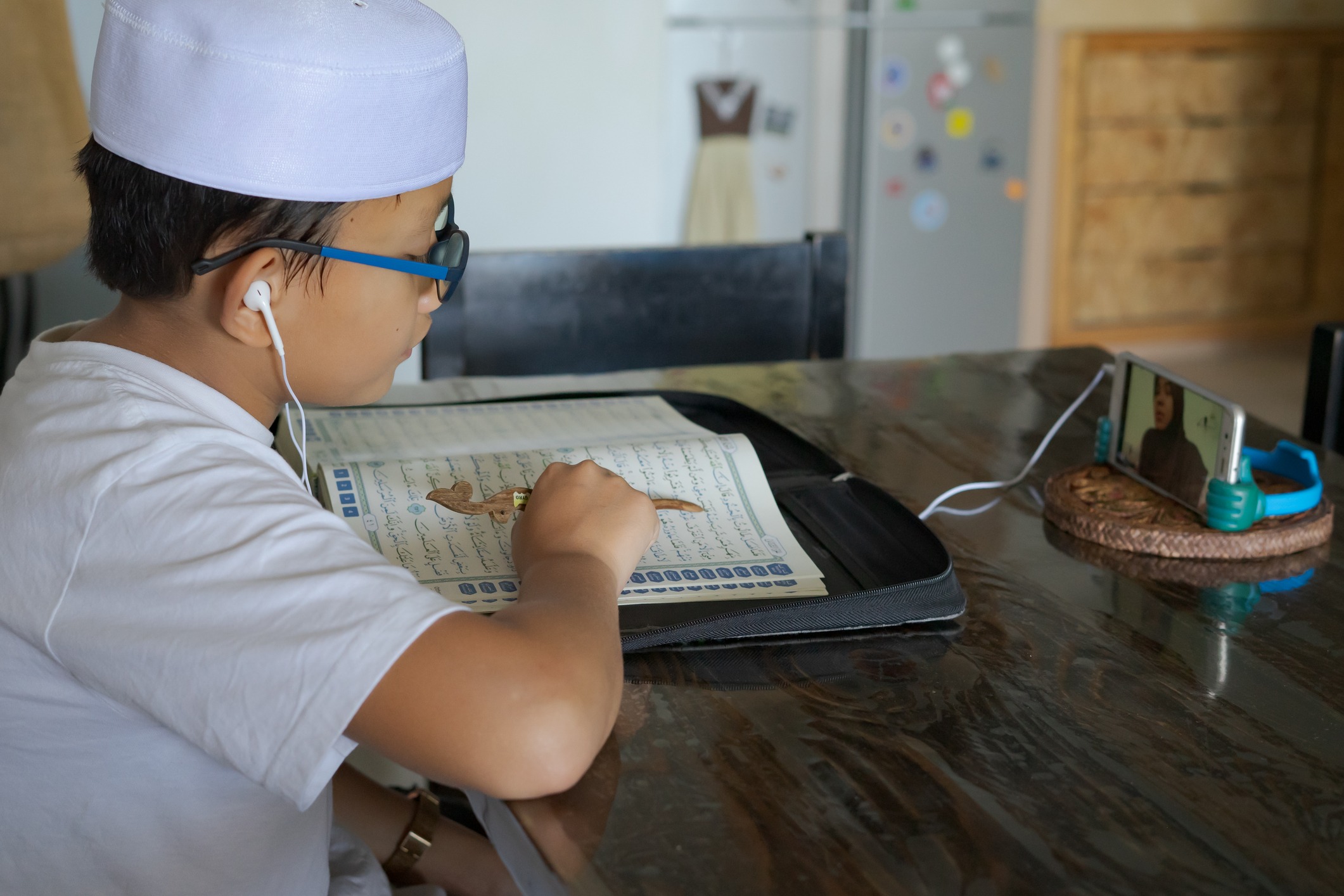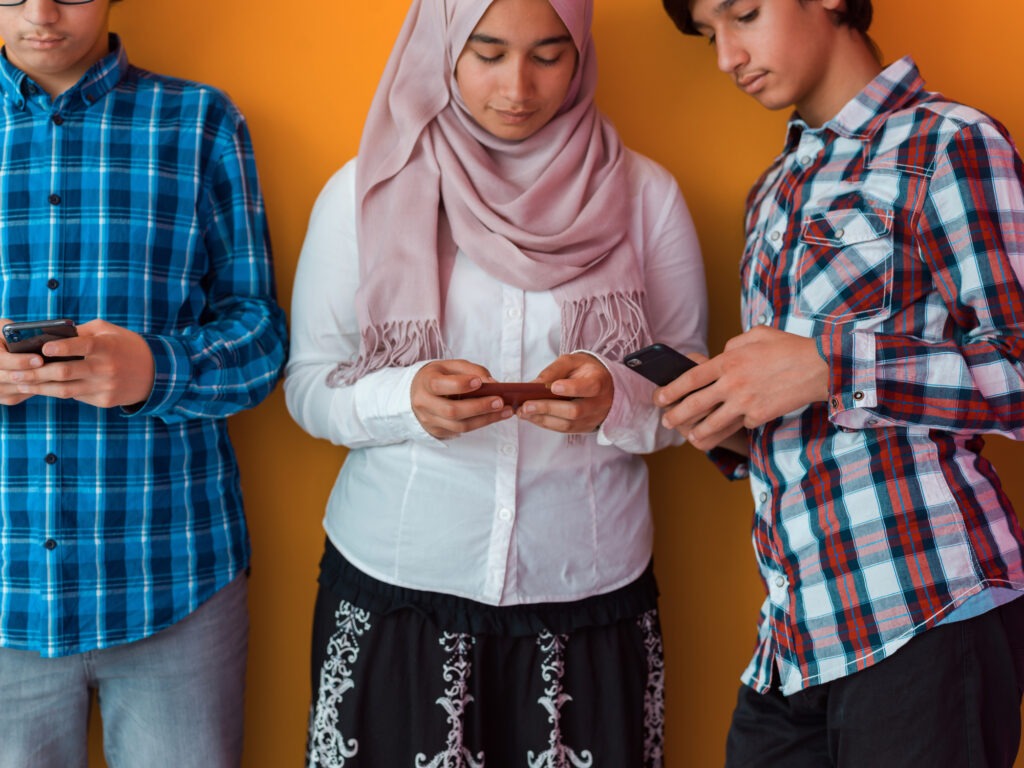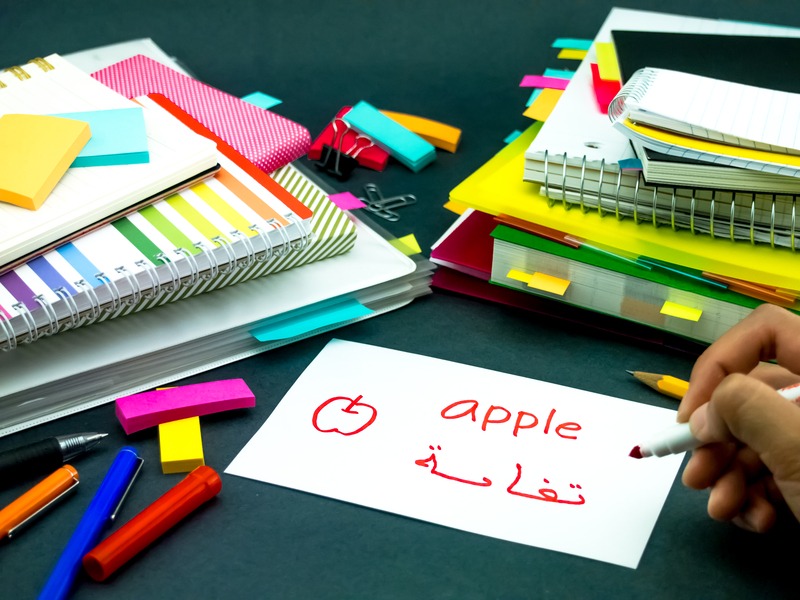
Islam lessons for children
Apply and share
Islamic knowledge, education and training
For children, it is very important for their education and development to develop love for Allah, His last messenger Muhammad (peace be upon him), and the pious Companions who lived with him.

This love arises in education and development by speaking sincerely about the Islamic religion with knowledge, and then citing those moments that are relevant to the different stages of child development.
Is your child already receiving his or her right to Islamic education?
The right of the child
You are probably wondering why Allah Almighty has given you a child; There is only one direct answer to this.
It is absolutely not just to feed and clothe your child, nor is it just to show off in this temporary worldly life. You have been given the responsibility of your child to raise him with love so that he worships Allah Almighty alone with knowledge.
Allah says in the Quran
(Surah ad-Dhaariyaat: 56)
“And I (Allah) have created the jinns and humans only to worship Me (alone).”
Raising your child to worship only Allah Almighty with pure intention or ikhlas is your responsible duty as a parent. This is a great favor from Allah Almighty with specific wisdom of course. Your child who has your best interests at heart in this temporary worldly life and eternal life in the hereafter should be educated in an educational manner to seek only the satisfaction and rewards of Allah Almighty.




Quality assurance
We use a maximum of 2 classes with 5 students per age category. Providing fun, but above all effective lessons and the social-emotional development of the child are our top priorities.



Who is the Tawfiq Foundation for?
Islamic knowledge, education and training

The Tawfiq Foundation is a concept and household name that provides online professional Islamic lessons for children and learning to read the Quran for beginners. At the Tawfiq Foundation we assume that parents know their responsibilities towards their children, themselves and towards their Lord, Allah Almighty. As a parent you are aware that we are not a cheap babysitting institution.
Children who are part of the Tawfiq Foundation have been entrusted to us by you as a parent, with the aim of conveying correct Islamic knowledge and behavior. Islamic norms and values, educational knowledge and training are of paramount importance to us, and we also expect this from involved parents.
Why e-learning?
Islamic knowledge through e-learning

There are more and more ways to acquire new Islamic knowledge. Online learning in particular, or rather e-learning, has made enormous progress in recent times in acquiring Islamic knowledge.
We at the Tawfiq Foundation believe in the future of online learning for both children and adults. The future lies mainly in the form of independent online courses in combination with online classroom lessons in small groups that you can take anytime, anywhere. This way, parents, caregivers and children can make optimal use of their time.
E-learning and taking Islamic classes offer you and your children many benefits to succeed in this worldly life and in the hereafter!
Why choose Islamic lessons for your child at the Tawfiq Foundation
Domains
Your Text
Your Text
Your Text
Your Text
Your Text
Your Text
Your Text
Your Text
Your Text
Your Text
Your Text
Your Text
Your Text
ST. Tawfiq

Experienced teachers
Pedagogical approach
Knowledge of Islam and Arabic
Dutch is the main language
Education of conscious Muslim
Bridge to society
Accent satisfaction Allah
Experience with the target group
Knowledge, guidance, coaching
Provide Islamic identity
Positive attention & explanation
Stimulate independence
ADVANTAGES

Small classes
Short lesson times
Customized digital learning
Nationally accessible
Insight on child performance
Connection with parents
Insight on child's progress
Time for your family life
Digital experience world
Positive results child
Tank saving home ⇄ mosque ~ €225 p/m
Travel time savings at home ⇄ mosque ~7pm p/m
Your companion
Are you a Muslim parent who would like to gain insight into what your child learns, how it is formed, how the Islamic identity is developed, and who wants to leave a spiritual educational legacy for her child? Then the Tawfiq Foundation is a companion for you in this world to realize this, with the will of Allah the Almighty.
Frequently asked questions to the Tawfiq Foundation
from Muslim parents over the past 3 years
Parents can help their children deal with discrimination or prejudice by teaching them that all people are equal before Allah, regardless of their origin, race or religion. They should encourage them to respond in a peaceful and sensible manner, and teach them to fight injustice through patience and forgiveness. In the Quran, Allah (swt) (interpretation of the translation) says in (surah Al-Hujurat 49:13): “O people, We have created you from a male and a female, and We have made you into nations and tribes, that you would know each other. Verily, the most noble of you in the sight of Allah is the one among you who fears (Allah) the most.”
Islam, Quran and Arabic lessons
“Very nice way of conveying Islamic knowledge to children and parents.”
“My family situation and planning fit perfectly with your organization! Finally Islamic lessons for our children!”
“A soothing feeling that you do not belong to an institution or mosque. This way the focus is purely on the Islamic lessons.”
“It's about time that Islamic lessons for children and parents can be followed at home. It feels a lot safer at home.”
“Saves a lot of travel time, gas money and organization to an Islamic educational institution or mosque! Great solution for our children!”
“I have been saying this for years that it should be possible for children to take lessons from home. I am happy that as an organization you are moving with the times.”



We are not a commercial institution but are a self-organization that does not use or request government subsidies. We are a foundation that, when necessary, raises collections and asks for financial support and donations from its community. Our foundation will also organize benefits when the need is dire or progressive to safeguard the Islamic identity of Dutch Muslims. Our foundation also works as much as possible with its own working capacity, are free, independent and unbound and rely only on Allah as the Only Provider.
Doctrine of Faith (Aqieda)
Faith Practice (Ibada)
Character Formation (Achlaq)
Good manners (Adaab)
Arabic (Reading and Speaking)
| Your prayer times today | |
| Prayer | Time |
| Fajr | 03:30 |
| Shorok | 05:18 |
| Dohr | 13:41 |
| Asr | 18:05 |
| Maghrib | 22:04 |
| Source | 23:52 |
Tawfiq Foundation | Vacancies |Linkpartners
Terms and Conditions | Copyright 2019-2025
Biography Companions
Social Justice (ADL)
Biography of Prophet Muhammad
Interaction with people (Mu'amalat)
Learn to recite Quran for beginners







